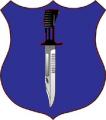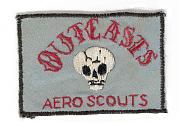Hey all,
I'd like to thank the following gents:
Jik for the kind mention here and the original suggestion to invite Wilf Owen to the online symposium.
Wilf Owen for graciously agreeing to participate in reviewing Science, Strategy and War by Col. Frans Osinga and share his insights in greater detail.
Other SWC members who took the time to help bring me up to speed. Much appreciated!
Dr. Chet Richards suggested to me today that I should ask Col. Osinga to participate as well and I readily agreed to do so.
Addendum:
Regarding Boyd's OODA Loop; neuroscientists using MRI and EEG studies have discovered quite a bit about the brain in the last ten years or so regarding it's structural modularity. If this early indication pans out in further peer-reviewed research, in terms of mapping cognitive processing during learning, then John Boyd had, in my view, a remarkably significant insight regarding human intelligence.









 ), I pretty much believed the same thing. But my research and Marines learned me better
), I pretty much believed the same thing. But my research and Marines learned me better  .
.
 Mind, it may have to worried about the household cat
Mind, it may have to worried about the household cat 


Bookmarks